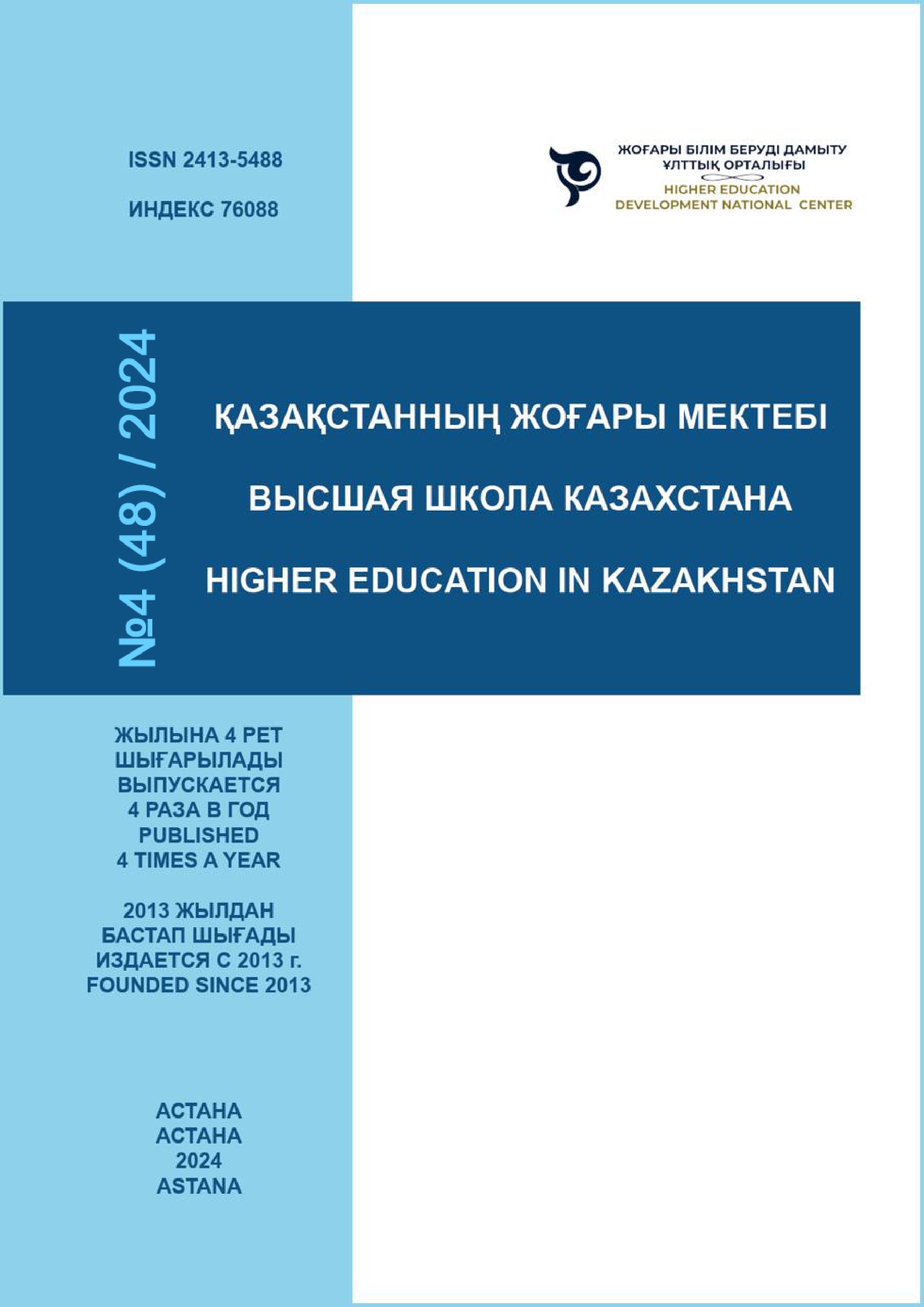ISSUES OF FORMATION OF PROFESSIONAL FOREIGN LANGUAGE COMPETENCE OF STUDENTS IN THE CONTEXT OF CONVERGENCE OF FORMAL AND NON-FORMAL EDUCATION
DOI:
https://doi.org/10.59787/2413-5488-2024-48-4-17-25Keywords:
foreign language competence, formal education, non-formal education, professional foreign language competence, convergence, competence, higher educationAbstract
This article considers the peculiarities of the formation of students' professional foreign language competence in the conditions of convergence of formal and non-formal education. The necessity of integration of formal and non-formal education in foreign language education is substantiated. The role and significance of formal education provided by educational institutions and non-formal education carried out outside educational institutions in the formation of students' professional foreign language competence is analyzed. Special attention is paid to the interaction of these two forms of education and their influence on the development of students' linguistic and communicative skills. One of the main objectives of the study is to identify the educational needs of students in the conditions of formation of their professional foreign language competence. As a result of the study, the authors made conclusions that the majority of students consider it appropriate to integrate formal and non-formal education, as it will allow them to master additional competencies and increase their motivation for learning. Thus, in conclusion, the authors of the article summarise the results of the study and draw conclusions about the significance of the interaction between formal and non-formal education for the formation and improvement of students' professional foreign language competence.
References
Aitov, V. F. (2007). Problem-project approach to the formation of foreign-language professional competence of students: the example of non-linguistic faculties of pedagogical universities: author's thesis .... Dr. of Pedagogical Sciences: 13.00.02 / V.F. Aitov; A.I. Herzen Russian State Pedagogical University. A.I. Herzen. - SPb., - 48 с.
CDHES. On approval of the Concept of development of higher education and science in the Republic of Kazakhstan for 2023 – 2029 (2023). Resolution of the Government of the Republic of Kazakhstan dated 28 March 2023 No. 248. https://adilet.zan.kz/rus/docs/P23000002482
Faleeva, A. A., & Nurzhanova, A. A. (2016). Formation of competences and communicative competence in teaching students a foreign language. European Science, 4(14), 69-75.
Fedotova, A. V., & Sokolova, E. A. (2021). New trends in the integration of language education and professional training. International Journal of Instruction, 14(1), 123-140. https://doi.org/10.29333/iji.2021.1418a
Khodakivska, O. S., & Gritsenko, O. V. (2022). The integration of formal and non-formal education in the formation of language skills: Opportunities and challenges. Language and Education, 36(1), 15-29. https://doi.org/10.1080/09500782.2021.1875302
Khutorskoy, A. A. (2010). Definition of general subject content and key competences as a characteristic of a new approach to the construction of educational standards. Bulletin of the Institute of Human Education, 1, 53-59.
Kicherova, M. N., & Trifonova, I. S. (2023). Non-formal education: The review of current studies. Obrazovanie I Nauka, 25(2), 46–67. https://doi.org/10.17853/1994-5639-2023-2-46-67
Kobeleva, E. P. (2010). Formation of professional foreign language competence of future specialists
Korshunov, I. A., Lubnikov, S. V., & Shirkova, N. N. (2023). Adult education and training for the development of problem-solving skills. Obrazovanie I Nauka, 25(6), 166–192. https://doi.org/10.17853/1994-5639-2023-6-166-192
Mikhailov, A. A., & Vorobyev, O. V. (2013). On the essence of the concept of project competence of future technology teachers. Polythematic network electronic scientific journal of Kuban State Agrarian University, 89, 1426-1435.
Nasikhanova, A. Z., & Davydova, L. N. (2013). To the question of the essence of the concept of "foreign language competence. Humanities Studies, 2(46), 29-38.
of economic profile. Vestnik TSPU, № 12(102), 23-31.
Sergeeva, N. N., & Bushmanova, Y. A. (2011). Professional-oriented foreign language communicative competence of a student of a technical university. Kazan Science, 8, 241-242.
Zaretskaya, L. M., & Smirnova, E. V. (2021). Key competences in higher education: The role of non-formal learning. Bulletin of the Russian Academy of Education, 3, 123-135.






